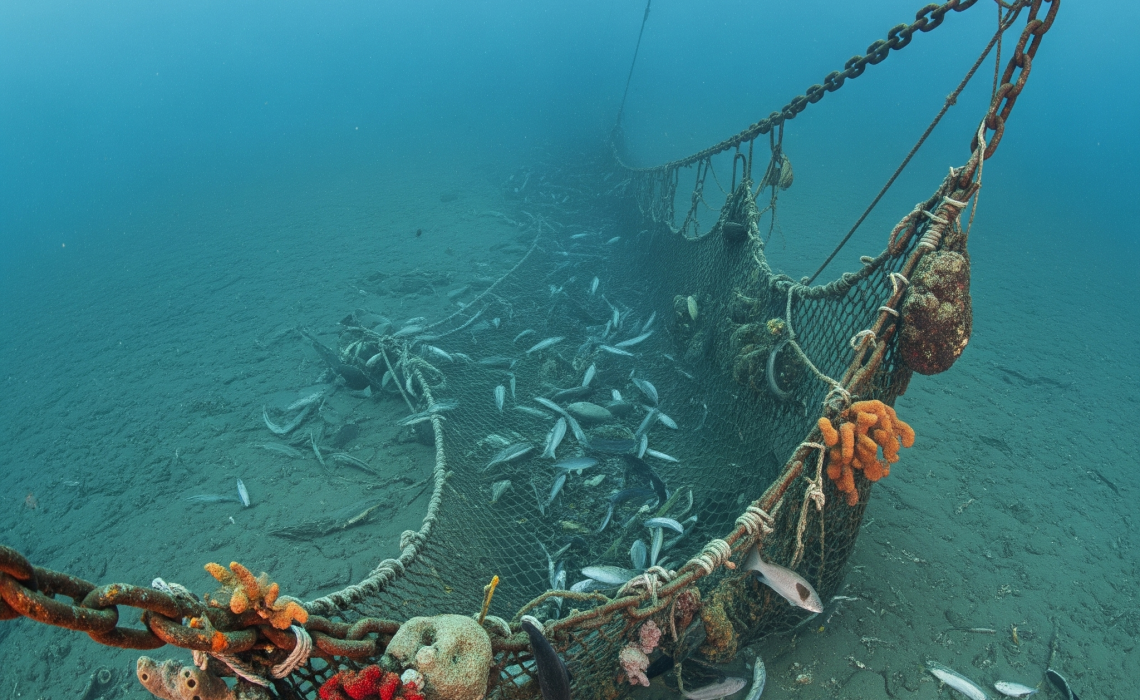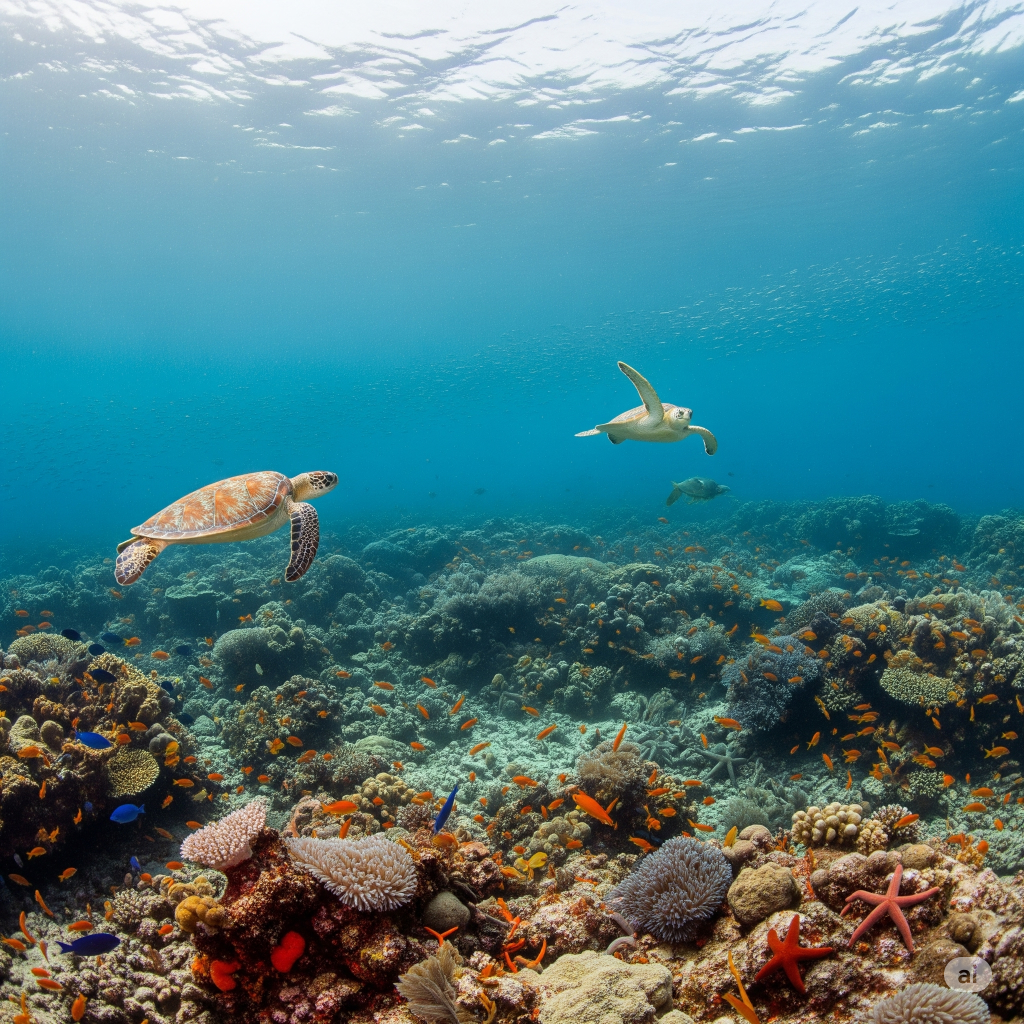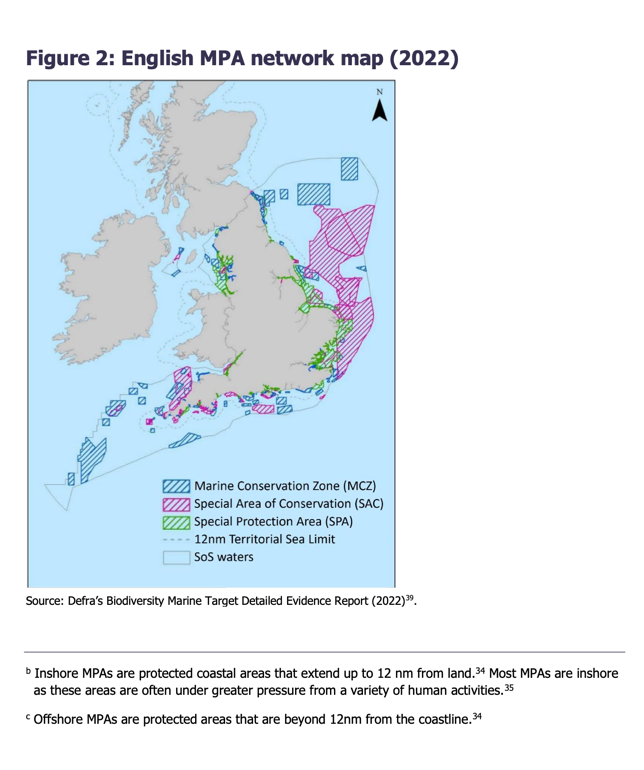
You know how passionate I am about our planet, and particularly the incredible, often-unseen wonders beneath the waves. So this is truly uplifting news from the UK, because it seems we might just be on the cusp of a massive win for our precious marine protected areas!
For what feels like eons, we’ve been hearing about “Marine Protected Areas” (MPAs), often with a cynical little voice in the back of our heads whispering, “Protected from what, exactly, if destructive fishing is still allowed?” It’s been a bit like putting a ‘No Parking’ sign up, but then letting double-decker buses drive straight through your prize-winning petunias, hasn’t it?
But now, the UK government has announced proposals to ban the devastating practice of bottom trawling in 41 offshore MPAs. Could this be the game-changer our UK oceans need?
Listen to my audio introduction above
A Scene from “Oceans” We Can’t Unsee
Remember Sir David Attenborough’s recent powerful film, “Oceans”? If you haven’t seen it, drop everything and do so immediately. It’s truly eye-opening. There’s a particularly gut-wrenching sequence where cameras are attached to bottom trawling nets, dragging mercilessly across the seabed. It’s not just a net, it’s a bulldozer underwater.
Sir David, with his inimitable gravitas, describes how these massive, heavy nets, often with iron chains, rake across the ocean floor, indiscriminately hoovering up everything in their path. He said it himself: “It’s hard to imagine a more wasteful way to catch fish.” We saw the utter devastation – ancient, delicate ecosystems, built up over centuries, simply obliterated in a matter of moments. Coral reefs, sponges, nurseries for countless species – all turned into a barren wasteland. It’s the kind of ecological vandalism that, once you’ve witnessed it, you can’t simply unsee.
And the shocking truth, as the film and many reports highlight, is that much of this has been happening within our supposed “protected” areas. It’s been a travesty, making a mockery of the very concept of marine protection.
When my young grand-daughter watched ‘Oceans’, she was so disgusted with what we are doing to our oceans she wanted to head to London and speak to our PM about stopping this immediately – and she was pretty serious about it! What did I do? Well apart from crying uncontrollably during this part of the Oceans film, I also added my email directly to our Secretary of State for Environment, Food and Rural Affairs, Steve Reed, through Oceana UK. The Oceans film, more than any of Sir David Attenborough’s documentaries I feel, prompted significant action from so many, thank goodness!

Fuelling a Greener Future, One Story at a Time. Every small step we take – from reusable bags to conscious consumption – ripples outwards, creating a wave of hope. Let’s rewrite the story of our planet, one click at a time. I believe in the power of storytelling. By sharing inspiring environmental initiatives, unsung sustainability heroes and practical tips, I aim to amplify the voices making a difference. Imagine a world where everyone is empowered to take action, one small change at a time. ‘Buy Me A Coffee’ donation is a quick and easy way to offer a small, one-off donation, that helps keep this platform running and allows me to continue sharing these vital stories. Just click the “Donate” button (top right corner). Every contribution, no matter the size, makes a difference. Thank you for being a part of this journey.
The Magic of Marine Regeneration
So, what does this proposed ban mean for our marine areas? It means HOPE.

When you remove the relentless pressure of bottom trawling, the ocean has an incredible, almost miraculous, ability to regenerate. Think of it like this: if you keep trampling a patch of wildflowers, they’ll never grow back. But give them space, sunlight, and time, and they’ll burst forth with life. The ocean is no different, but on a grander, more complex scale.
We’ve seen evidence of this regeneration in other areas where bottom trawling has been prohibited. Fish populations bounce back, sometimes rapidly. Delicate seabed habitats, like vital coral gardens and seagrass meadows, can begin to recover, providing crucial shelter, food, and breeding grounds for a huge array of marine life – from tiny crustaceans to larger fish, and even the magnificent marine mammals that rely on a healthy food chain.
Not only that, but a healthy seabed is a crucial carbon sink. When these sediments are churned up by trawling, vast amounts of stored carbon can be released, contributing to climate change. So, protecting these areas isn’t just good for marine life, it’s good for the planet as a whole!
According to Oceana UK, only 38 of the UK’s 377 MPA’s are fully protected from bottom trawling. So this ban, if fully implemented across the whole of these additional 41 MPAs could be an invaluable lifeline for England’s seas. It means more fish for sustainable fishing practices in the long run, more vibrant ecosystems, and a better chance for our oceans to play their vital role in regulating our climate.
Of course, there’s a consultation period now, and it’s vital that the fishing community is engaged as they are part of the solution but its good to see that the public can make our voices heard to ensure these proposals become concrete action. This isn’t just about lines on a map; it’s about giving our incredible underwater world the space it needs to breathe, thrive, and recover.
Sir David would be proud, and so should we be, for pushing for such a crucial step forward. Let’s hope we can lead the way for other countries to do the same.
What are your thoughts on this? Have you seen “Oceans”? Let me know in the comments below!
LINKS TO ARTICLES:
Discover Wildlife: UK Government proposes ban on bottom trawling in Marine Protected Areas
BBC Countryfile: What would the extended bottom-trawling ban mean for UK wildlife and fishers?

